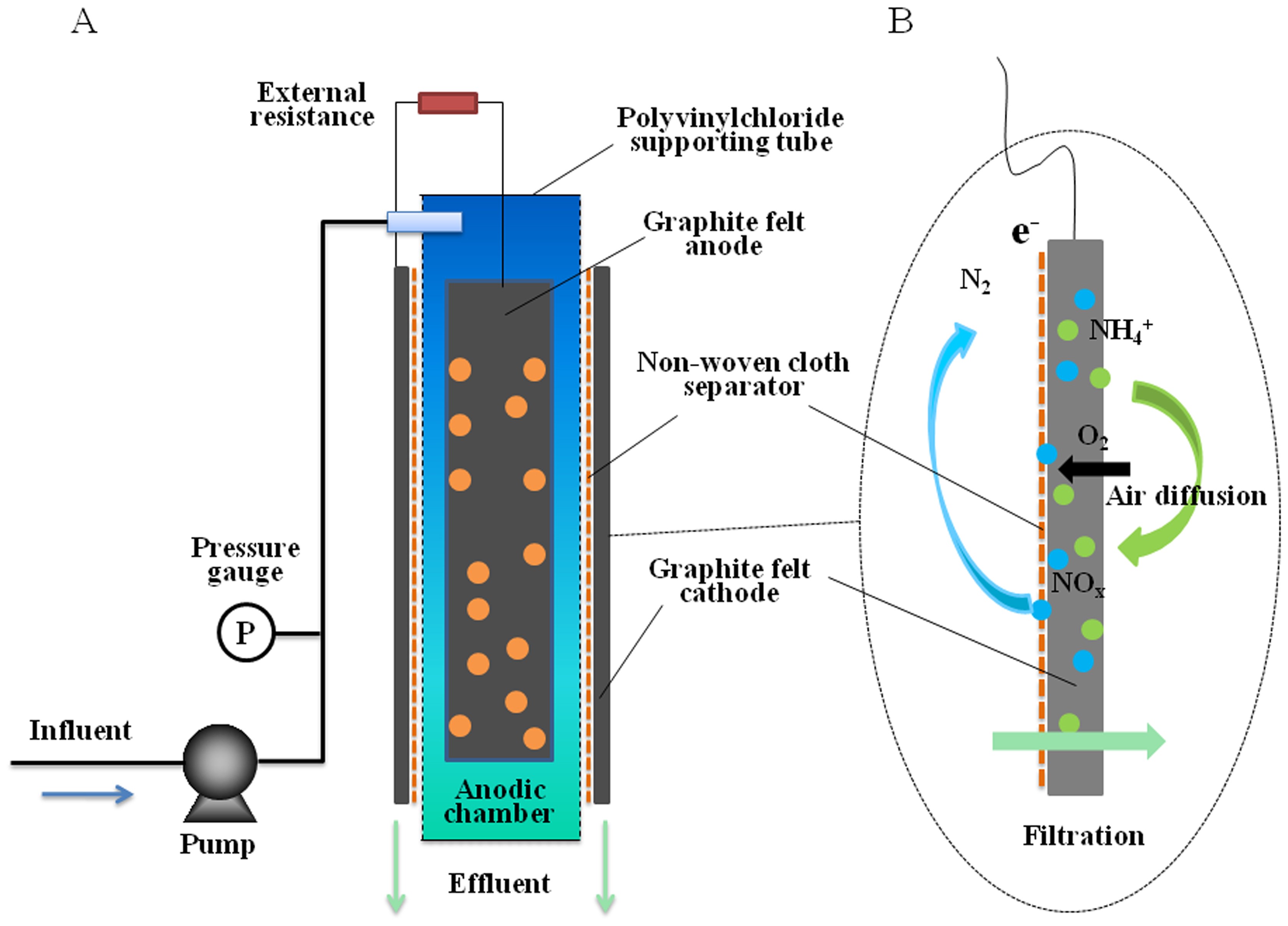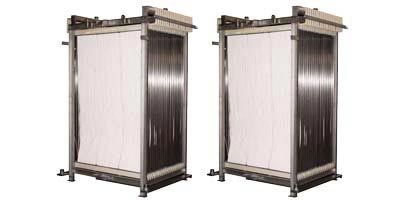Troubleshooting Common Issues with Membrane Bioreactor Systems
Wiki Article
The Benefits of Membrane Bioreactors in Sustainable Wastewater Management
Membrane bioreactors (MBRs) represent a critical improvement in lasting wastewater management, efficiently merging biological treatment with sophisticated membrane filtration technology. This integration not only enhances effluent top quality by effectively removing contaminants but additionally opens up methods for water reuse in various applications, hence resolving journalism demand for source conservation. The small design of MBRs contributes to substantial decreases in environmental impact and functional expenses. As the demand for lasting remedies increases, exploring the diverse benefits of MBRs may disclose unexpected effects for the future of wastewater treatment systems.Review of Membrane Bioreactors
Membrane layer bioreactors (MBRs) represent a substantial development in wastewater therapy technology, incorporating organic deterioration with membrane layer filtration to boost the efficiency of the treatment procedure. This innovative system integrates the advantages of conventional turned on sludge processes with membrane modern technology, enabling enhanced solid-liquid splitting up. MBRs utilize semi-permeable membranes to different cured water from biomass, resulting in top notch effluent that can be reused or safely released right into the environment.The operational style of MBRs commonly involves a bioreactor where bacteria damage down raw material, followed by a membrane system that filterings system the combined liquor. This configuration not only lessens the impact of the therapy facility however additionally permits greater biomass concentrations and lowered hydraulic retention times. Furthermore, MBRs can treating a bigger range of pollutants, consisting of nutrients and microorganisms, making them suitable for numerous applications, from metropolitan wastewater therapy to commercial effluent handling.
The combination of MBRs into wastewater monitoring systems is a sign of an expanding fad in the direction of sustainable and reliable techniques in environmental engineering. Their ability to generate top notch effluent while minimizing room requirements settings MBR innovation as a principal in modern-day wastewater therapy solutions.
Enhanced Effluent Quality

The membrane filtering procedure acts as a physical obstacle, enabling the retention of microbes and particle issue, which adds to a more clear and cleaner effluent (Membrane Bioreactor). MBRs run at higher biomass concentrations than standard activated sludge systems, promoting extra reliable biodegradation of contaminants. This results in a reduction in biochemical oxygen demand (BOD) and overall put on hold solids (TSS) degrees in the last effluent
In addition, MBRs show excellent efficiency in treating difficult wastewater compositions, such as industrial effluents and wastewater with high nutrient lots. Therefore, the effluent generated is often of greater high quality, permitting for more flexible disposal choices and lowered ecological impact. Ultimately, the improved effluent top quality accomplished with MBR technology highlights its important function beforehand sustainable wastewater monitoring methods.
Water Reuse Opportunities
The high-quality effluent produced by membrane bioreactors (MBRs) opens considerable opportunities for water reuse in numerous applications. MBRs efficiently eliminate pollutants, consisting of microorganisms, suspended solids, and natural issue, leading to treated water that meets or exceeds governing requirements for reuse. This top quality permits the application of water reusing campaigns across diverse fields.One famous application is in agriculture, where dealt with wastewater can be utilized for watering, advertising lasting farming practices while conserving freshwater sources. In addition, MBR-treated effluent can be made use of for commercial procedures such as cooling, cleansing, and as a process water source, dramatically lowering the need for potable water in these procedures.
In urban settings, MBRs promote the use of redeemed water for landscape watering, commode flushing, and various other non-potable uses, contributing to find more the general durability of water systems. The integration of MBR modern technology in decentralized systems aids in handling local water needs, especially in water-scarce regions.
Minimized Ecological Influence
Just how can the adoption of membrane bioreactors (MBRs) add to a minimized environmental influence in wastewater management? MBRs significantly boost the therapy efficiency of wastewater while minimizing eco-friendly disturbances. By incorporating biological therapy procedures with membrane purification, MBRs efficiently remove a variety of pollutants, consisting of raw material, nutrients, and pathogens. This innovative purification brings about higher-quality effluent, which is important for protecting water communities and reducing the problem on all-natural water bodies.Additionally, MBRs run at reduced hydraulic retention times compared to traditional systems, causing smaller treatment plant impacts. This portable design minimizes land usage, thereby protecting all-natural environments and biodiversity. The process also produces much less sludge than traditional methods, alleviating disposal obstacles and decreasing greenhouse gas emissions related to sludge monitoring.
In addition, you can find out more MBRs facilitate the healing of useful sources, such as water and nutrients, adding to a circular economic situation. By making it possible for water reuse for irrigation or commercial procedures, MBRs assist relieve freshwater scarcity, thus promoting lasting water make use of techniques. Inevitably, the adoption of MBR innovation stands for a considerable stride in the direction of minimizing the ecological impact of wastewater monitoring systems.
Economic Advantages of MBRs

In addition, MBRs promote the manufacturing of top notch effluent, which can be recycled for different applications, such as agricultural irrigation and commercial procedures - Membrane Bioreactor. This reuse ability can considerably decrease water purchase prices, supplying a monetary incentive for sectors encountering rigid water guidelines
The compact design of MBR systems additionally leads to decreased land requirements, which is specifically useful in urban locations where realty is expensive. By minimizing room, sectors and communities can reduce land procurement and upkeep costs.
Additionally, MBRs often require much less regular upkeep and have a longer life expectancy than traditional systems, even more adding to cost financial savings. In summary, the financial advantages of MBRs-- varying from reduced functional costs to land financial savings and effluent reuse-- make them a compelling selection for sustainable wastewater administration, offering both prompt and long-term monetary advantages.
Conclusion
Furthermore, MBRs contribute to decreased environmental effects with compact designs and lower sludge generation. Economic advantages further boost their stability, making MBRs an encouraging remedy for resolving the obstacles of wastewater therapy and advertising sustainable resource monitoring.
Membrane layer bioreactors (MBRs) stand for an essential development in sustainable wastewater management, properly combining biological therapy with sophisticated membrane layer filtration innovation.Membrane bioreactors (MBRs) stand for a significant advancement in wastewater therapy innovation, integrating organic deterioration with membrane purification to boost the effectiveness of the treatment procedure.Accomplishing enhanced effluent top quality is one of the most considerable advantages of making use of membrane bioreactors (MBRs) in wastewater therapy.Furthermore, MBRs demonstrate superb performance in dealing with difficult wastewater compositions, such as commercial effluents and wastewater with high nutrient tons.Incorporating membrane bioreactors (MBRs) right into wastewater administration not only minimizes environmental influence but additionally provides substantial economic benefits.
Report this wiki page